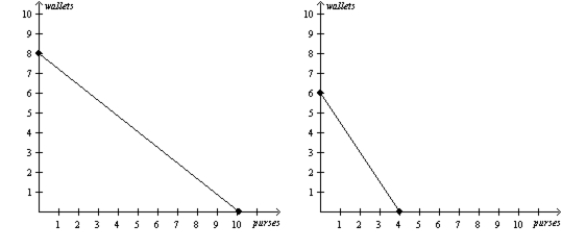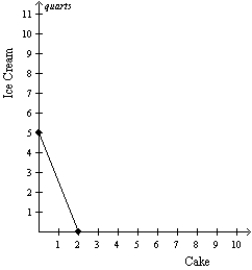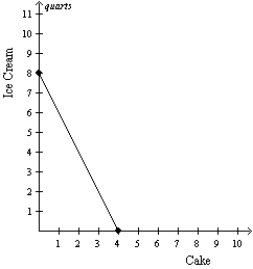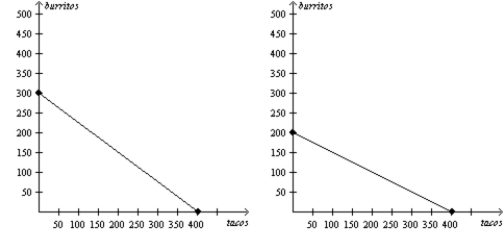Exam 3: Interdependence and the Gains From Trade
Exam 1: Ten Principles of Economics439 Questions
Exam 2: Thinking Like an Economist615 Questions
Exam 3: Interdependence and the Gains From Trade527 Questions
Exam 4: The Market Forces of Supply and Demand697 Questions
Exam 5: Measuring a Nations Income518 Questions
Exam 6: Measuring the Cost of Living543 Questions
Exam 7: Production and Growth507 Questions
Exam 8: Saving, Investment, and the Financial System565 Questions
Exam 9: The Basic Tools of Finance510 Questions
Exam 10: Unemployment and Its Natural Rate698 Questions
Exam 11: The Monetary System517 Questions
Exam 12: Money Growth and Inflation484 Questions
Exam 13: Open-Economy Macroeconomics: Basic Concepts520 Questions
Exam 14: A Macroeconomic Theory of the Open Economy478 Questions
Exam 15: Aggregate Demand and Aggregate Supply563 Questions
Exam 16: The Influence of Monetary and Fiscal Policy on Aggregate Demand510 Questions
Exam 17: The Short-Run Tradeoff Between Inflation and Unemployment516 Questions
Exam 18: Six Debates Over Macroeconomic Policy372 Questions
Select questions type
The principle of comparative advantage does not provide answers to certain questions. One of those questions is
(Multiple Choice)
4.8/5  (32)
(32)
Use the following Figure to answer the question :Figure 3-5
Hosne's Production Possibilities Frontier Merve's Production Possibilities Frontier  -Refer to Figure 3-5. If the production possibilities frontier shown for Merve is for 8 hours of work, then how long does it take Merve to make one purse?
-Refer to Figure 3-5. If the production possibilities frontier shown for Merve is for 8 hours of work, then how long does it take Merve to make one purse?
(Multiple Choice)
4.9/5  (36)
(36)
Two countries can achieve gains from trade even if one country has an absolute advantage in the production of both goods.
(True/False)
4.7/5  (36)
(36)
Suppose that a worker in Boatland can produce either 5 units of wheat or 25 units of fish per year, and a worker in Farmland can produce either 25 units of wheat or 5 units of fish per year. There are 30 workers in each country. No trade occurs between the two countries. Boatland produces and consumes 75 units of wheat and 375 units of fish per year while Farmland produces and consumes 375 units of wheat and 75 units of fish per year. If trade were to occur, Boatland would trade 90 units of fish to Farmland in exchange for 80 units of wheat. If Boatland now completely specializes in fish production, how many units of fish could it now consume along with the 80 units of imported wheat?
(Multiple Choice)
4.8/5  (43)
(43)
Suppose Susan can wash three windows per hour or she can iron six shirts per hour. Paul can wash two windows per hour or he can iron five shirts per hour.
(Multiple Choice)
4.8/5  (37)
(37)
Use the following Table to answer the question : Table 3-16
The following table contains some production possibilities for an economy for a given month.
 -Refer to Table 3-16. If the production possibilities frontier is bowed outward, then "?" could be
-Refer to Table 3-16. If the production possibilities frontier is bowed outward, then "?" could be
(Multiple Choice)
4.8/5  (40)
(40)
Use the following Table to answer the question : Table 3-31
 -Refer to Table 3-31. In 10 hours,
-Refer to Table 3-31. In 10 hours,
(Multiple Choice)
4.9/5  (35)
(35)
Use the following Table to answer the question : Table 3-7
Assume that the farmer and the rancher can switch between producing meat and producing potatoes at a constant rate.
 -Refer to Table 3-7. Which of the following combinations of meat and potatoes could the farmer produce in 24 hours?
-Refer to Table 3-7. Which of the following combinations of meat and potatoes could the farmer produce in 24 hours?
(Multiple Choice)
4.8/5  (41)
(41)
Use the following Table to answer the question : Table 3-20
Assume that Brad and Theresa can switch between producing wheat and producing beef at a constant rate.
 -Refer to Table 3-20. What is Brad's opportunity cost of producing one bushel of wheat?
-Refer to Table 3-20. What is Brad's opportunity cost of producing one bushel of wheat?
(Multiple Choice)
4.9/5  (33)
(33)
Use the following Table to answer the question : Table 3-15
 -Refer to Table 3-15. Assume that the farmer and the rancher each has 40 labor hours available. If each person divides his time equally between the production of meat and potatoes, then total production is
-Refer to Table 3-15. Assume that the farmer and the rancher each has 40 labor hours available. If each person divides his time equally between the production of meat and potatoes, then total production is
(Multiple Choice)
5.0/5  (38)
(38)
Use the following scenario to answer the question : Scenario 3-1
The production possibilities frontiers below show how much Greg and Catherine can each produce in 8 hours of time.
Greg's Production Possibilities Catherine's Production Possibilities

 -Refer to Scenario 3-1. Is it possible for Greg and Catherine to gain from trade? Defend your answer.
-Refer to Scenario 3-1. Is it possible for Greg and Catherine to gain from trade? Defend your answer.
(Essay)
4.8/5  (32)
(32)
Use the following Table to answer the question : Table 3-11
Assume that Max and Min can switch between producing mittens and producing hats at a constant rate.
 -Refer to Table 3-11. Assume that Max and Min each has 36 labor hours available. If each person divides his/her time equally between the production of mittens and hats, then total production is
-Refer to Table 3-11. Assume that Max and Min each has 36 labor hours available. If each person divides his/her time equally between the production of mittens and hats, then total production is
(Multiple Choice)
5.0/5  (36)
(36)
Use the following Figure to answer the question :
Figure 3-14
Arturo's Production Possibilities Frontier Dina's Production Possibilities Frontier
 -Refer to Figure 3-14. At which of the following prices would both Arturo and Dina gain from trade with each other?
-Refer to Figure 3-14. At which of the following prices would both Arturo and Dina gain from trade with each other?
(Multiple Choice)
4.8/5  (28)
(28)
Use the following Table to answer the question : Table 3-34
Assume that Indonesia and India can switch between producing rice and bananas at a constant rate.
 -Refer to Table 3-34. India's opportunity cost of producing rice is
-Refer to Table 3-34. India's opportunity cost of producing rice is
(Multiple Choice)
4.8/5  (41)
(41)
It takes Heather 1 hour to change the oil in the car and 20 minutes to do the dishes. It takes Zach 1.5 hours to change the oil in the car. For Zach to have a comparative advantage changing the oil it must take him more than minutes to do the dishes.
(Short Answer)
4.9/5  (42)
(42)
Use the following Table to answer the question : Table 3-24
Assume that England and Spain can switch between producing cheese and producing bread at a constant rate.
 -Refer to Table 3-24. The opportunity cost of 1 unit of bread for England is
-Refer to Table 3-24. The opportunity cost of 1 unit of bread for England is
(Multiple Choice)
4.8/5  (30)
(30)
Which of the following is not a reason people choose to depend on others for goods and services?
(Multiple Choice)
4.9/5  (41)
(41)
International trade may make some individuals in a nation better off, while other individuals are made worse off.
(True/False)
4.8/5  (34)
(34)
Showing 301 - 320 of 527
Filters
- Essay(0)
- Multiple Choice(0)
- Short Answer(0)
- True False(0)
- Matching(0)